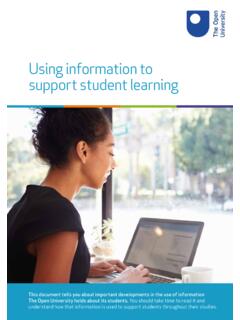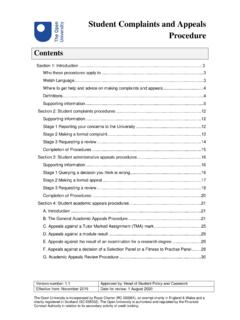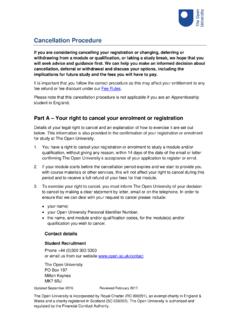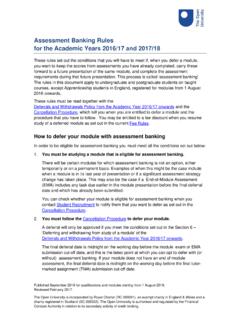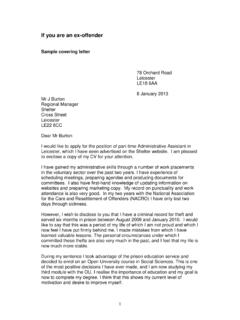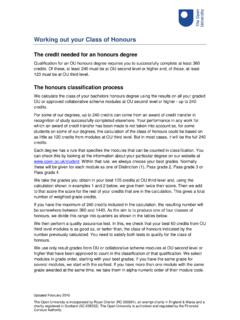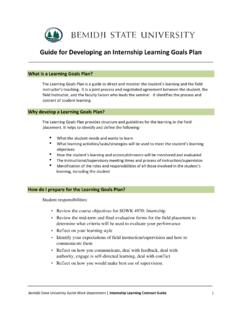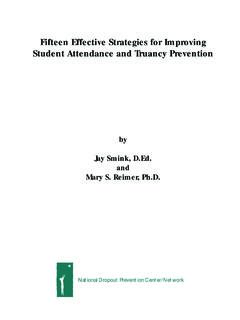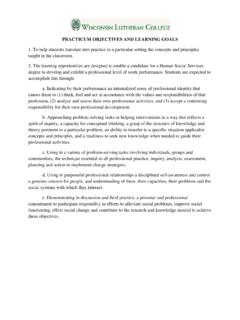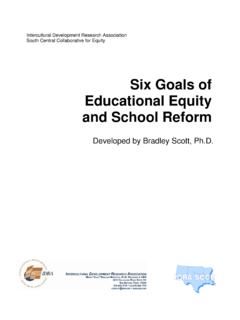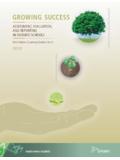Transcription of Policy on Ethical use of Student Data for Learning Analytics
1 Policy on Ethical use of Student data for Learning Analytics September 2014 The Open University is incorporated by Royal Charter (RC 000391), an exempt charity in England & Wales and a charity registered in Scotland (SC 038302). The Open University is authorised and regulated by the Financial Conduct document is released under the following Creative Commons license: Attribution-NonCommercial-ShareAlike CC BY-NC-SA Introduction Rationale The Open University has collected and analysed Student data as a means of providing information relating to Student support and retention for many years. The changing landscape of higher education has seen the rapid expansion of uses to which Student data is put. The Open University, in common with many other higher education institutions, is now looking at its use of Learning Analytics .
2 In the context of the Open University, Learning Analytics is the use of raw and analysed Student data to proactively identify interventions which aim to support students in achieving their study goals . Such interventions may be designed to support individual students and/or the entire cohort. This is in line with the University s vision of ..delivering a step-change in how effectively we help students achieve their study goals and to deliver ..a study experience that maximizes students chances of success in achieving their study goals whilst maintaining academic standards. 1 1 The Strategic Plan 2012-2015 The use of a Learning Analytics approach to drive Student support within the University is relatively new. There is a need to establish guiding principles which help provide a clear framework for the Ethical application of Learning Analytics .
3 Problem statement All data captured as a result of the University s interaction with the Student has the potential to provide evidence for Learning Analytics . data will, however, only be used for Learning Analytics where there is likely to be an expected benefit (which will be evaluated) to students Learning . The techniques used in Learning Analytics are based on standard statistical methods, but typically involve the development of complex models, the full working of which will only be apparent to those familiar with the data and with the statistical methods employed. It is likely, however, that users will want to understand how the models produce the outcomes which they then deploy. students will want to understand why they have been selected for an intervention and, in some cases, may want to challenge the basis for their selection.
4 A potential conflict exists therefore between creating models which provide the most reliable outcomes and those which work in ways that can be made transparent to users and subjects. The University has agreed a communication strategy to explain how individual subjects are affected by specific applications of Learning Analytics , in order to off-set this complexity. In order to make the new Policy of practical use, staff will need support to facilitate their understanding of how the Policy applies in practice. This will be provided separately in the form of guidance notes aimed at different staff roles, providing practical examples of the uses to which data may be put and the Ethical considerations. Access to Student data is determined by staff permission levels and most staff will have permissions to access a wide range of Student data .
5 This Policy does not in itself attempt to define how different categories of staff will engage with data and assumes that existing Policy and guidance applies (for example, the data Protection Policy states that All personal information is held in secure computer and manual files, and we will only transfer data within the University on a need-to-know basis so that we can support our academic and other services to you. ) Learning Analytics can be applied to individual students as well as to defined groups of students (as a result of identifying a Student via combinations of characteristics and/or study behaviours), and to whole cohorts of students (as a result of amending the assessment regime on a module following observed behaviours and/or results, for example).
6 The Policy and principles created apply in all cases. The use of Student data in new ways will necessarily impact on current practice. As such, a number of existing policies relating and referring to potential uses of Student data require review. The Policy is informed by significant consultation with key stakeholders and review of existing practice in other higher education institutions and detailed in the literature. A review of literature of external practice suggests that Policy development in response to new uses of Student data is relatively scarce. As a result, any new Policy developed within the University has few exemplars and should be subject to review and amendment in 12 months time. The success of any Learning Analytics approach is dependent on a reasonably complete and up to date dataset.
7 As part of the stakeholder consultation, it has been established that there should be a responsibility on the Student to ensure that their own held data reflects current circumstances. This is detailed in Principle 4 of the Student Charter2. Further guidance will be provided to students to ensure that this is well understood. Both the University and students have a responsibility to ensure that Student personal data is current and accurate. 2 The Student Charter Any use made by the University of data regarding individual students must be compliant with the data Protection Act. More specifically, data must be handled (processed) in accordance with the data protection principles. In order to assure best practice and to reduce the risk of non-compliance with the data Protection Act, a formal data Protection Assessment has been conducted.
8 The risks identified and the resulting actions required to eliminate or mitigate these risks have been recorded with the University's data Protection Coordinator. Definitions The following definitions are intended to provide clarity about terms used throughout the Policy . a) Learning Analytics has been defined as the collection and analysis of data generatedduring the Learning process in order to improve the quality of Learning and , Dawson, & Lynch, 2013 b)The term Student refers to individuals registered to study on a module or does not include enquirers or informal )The term cohort may refer to, for example, all students linked to a qualification orstudents registered on a specific September 2014 Page 2 of 11 d) An intervention derived from a Learning Analytics approach may refer to information, advice and guidance (IAG) directed from University staff to one or more students .
9 Learning Analytics at a module or qualification level may be used to inform changes to teaching and Learning design. e) data used for Learning Analytics typically falls into one of two categories: that captured at registration or at later points as a result of the Student supplying information to the University (typically labelled as Student characteristic data ), and that derived from ways in which the Student engages with University systems as a result of their ongoing study (typically summarised as Study behaviour data ). Access to this data is governed by existing policies such as the data Protection Policy . f) Sensitive data : The data Protection Act defines sensitive data and generally requires an individual s permission to collect and use sensitive data for a specified purpose.
10 The items of sensitive data that the University currently collects are: racial or ethnic origin religious or similar beliefs disability and other health matters sexual life. The items of sensitive data that the University does not currently collect are: political opinions offences (including alleged offences) criminal proceedings, outcomes and sentences membership of trade unions. g) In the context of this Policy , informed consent refers to the process whereby the Student is made aware of the purposes to which some or all of their data may be used for Learning Analytics and provides consent. Informed consent applies at the point of reservation or registration on to a module or qualification. Requests to students to participate in educational research will follow existing university practices including applying to the Student Research Project Panel (SRPP)44 Student Research Project Panel and Human Research Ethics Committee (HREC)5.
